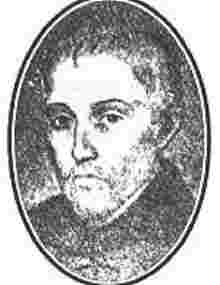
Tomás Luis de Victoria was the most famous Spanish composer of the Renaissance. He stands with Giovanni Pierluigi da Palestrina and Orlande de Lassus as among the principal composers of the late Renaissance, and was "admired above all for the intensity of some of his motets and of his Offices for the Dead and for Holy Week". His surviving oeuvre, unlike that of his colleagues, is almost exclusively sacred and polyphonic vocal music, set to Latin texts. As a Catholic priest, as well as an accomplished organist and singer, his career spanned both Spain and Italy. However, he preferred the life of a composer to that of a performer.

Psalm 42, Op. 42 Wie der Hirsch schreit is a cantata by Felix Mendelssohn, setting Psalm 42 in German. It was written and published in 1837 for soloists, mixed choir and orchestra.

Psalm 150 is the 150th and final psalm of the Book of Psalms, beginning in English in the King James Version: "Praise ye the LORD. Praise God in his sanctuary". In Latin, it is known as "Laudate Dominum in sanctis eius". In Psalm 150, the psalmist urges the congregation to praise God with music and dancing, naming nine types of musical instruments.

Harald Feller is a German organist, choral conductor and composer teaching at the Hochschule für Musik und Theater München. He was awarded the 1983 Grand Prix du Disque Liszt.
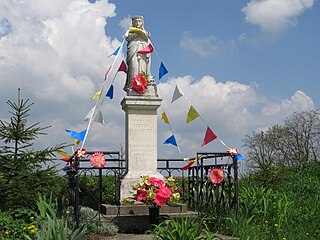
Psalm 115 is the 115th psalm of the Book of Psalms, beginning in English in the King James Version: "Not unto us, O LORD, not unto us, but unto thy name give glory". It is part of the Egyptian Hallel sequence in the fifth division of the Book of Psalms.

"Jesu, meine Freude" is a hymn in German, written by Johann Franck in 1650, with a melody, Zahn No. 8032, by Johann Crüger. The song first appeared in Crüger's hymnal Praxis pietatis melica in 1653. The text addresses Jesus as joy and support, versus enemies and the vanity of existence. The poetry is bar form, with irregular lines from 5 to 8 syllables. The melody repeats the first line as the last, framing each of the six stanzas.

Os justi, WAB 30, is a sacred motet composed by Anton Bruckner in 1879. Os Justi is a Gregorian chant used as gradual of the Commune Doctorum, and as introit I and gradual II of the Commune Confessoris non Pontificis.

Selva morale e spirituale is the short title of a collection of sacred music by the Italian composer Claudio Monteverdi, published in Venice in 1640 and 1641. The title translates to "Moral and Spiritual Forest". The full title is: "Selva / Morale e Spirituale / di Clavdio Monteverde / Maestro di Capella della Serenissima / Republica Di Venetia / Dedicata / alla Sacra Cesarea Maesta dell' Imperatrice / Eleonora / Gonzaga / Con Licenza de Superiori & Priuilegio. / In Venetia M DC X X X X / Appresso Bartolomeo Magni".
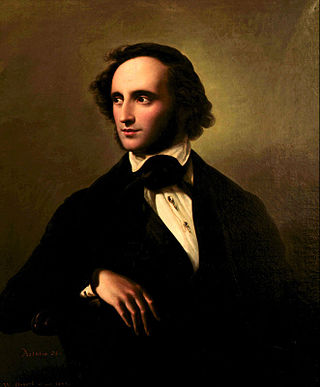
Jauchzet dem Herrn, alle Welt, WoO. 28, is an anthem for choir a cappella, a setting of Psalm 100 in German composed by Felix Mendelssohn in 1844. It was published in 1855 after the composer's death. It is the most popular setting of Psalm 100 by Mendelssohn, who also wrote a four-part motet in Latin, "Jubilate Deo", as part of Three Motets, Op. 69, in 1847 for use in the Church of England, which adds a doxology to the psalm text. He set the psalm again, but with paraphrased text by Ambrosius Lobwasser, "Ihr Völker auf der Erde all", as part of Sieben Psalmen, harmonising melodies from the Genevan Psalter.
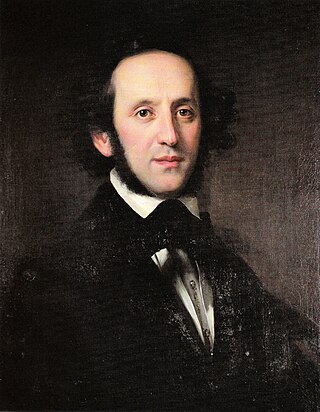
Denn er hat seinen Engeln befohlen, MWV B 53, is the incipit of a motet for an eight-part choir a cappella by Felix Mendelssohn. He wrote it in 1844 for the Berlin Cathedral, setting verses 11 and 12 from Psalm 91. Later, Mendelssohn made the motet with accompaniment part of his oratorio Elijah. It was published in 1844, and by Breitkopf & Härtel in 1875 in the complete edition of the composer's works.

Six Motets, Op. 82, are six motets for choir a cappella by Friedrich Kiel. He set selected psalm verses in German. The motets were published in 1883 by Bote & Bock, dedicated to H. A. Köstlin, as Sechs Motetten für gemischten Chor a cappella.

Psalm 150 is a psalm setting by César Franck. He wrote the composition, setting Psalm 150 for four-part choir, orchestra and organ, in 1883. It was published in 1896 by Breitkopf & Härtel. Carus-Verlag published an arrangement for choir, strings and organ. The incipit in French is "Halleluiah! Louez le Dieu, caché dans ses saints tabernacles".

Verleih uns Frieden is a chorale cantata by Felix Mendelssohn, setting a prayer for peace by Martin Luther. Mendelssohn composed the short work in one movement for mixed choir and orchestra in 1831. It is also known as Verleih uns Frieden gnädiglich.

Sechs Lieder, Op. 59, is a collection of six part songs for four voices a cappella by Felix Mendelssohn. He composed the songs between 1837 and 1843, setting six poems in German. They are subtitled "Im Freien zu singen", and focus on nature. They were published after his death as part of his complete works. One of the songs, "O Täler weit, o Höhen" became so popular that it is also regarded as Volkslied.
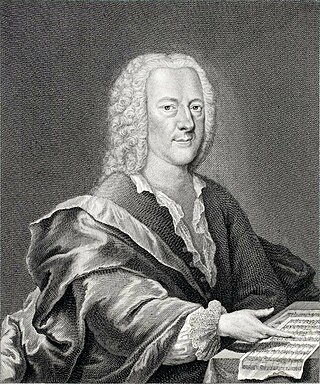
Georg Philipp Telemann composed the motet Ein feste Burg ist unser Gott, TWV 8:7, setting Luther's hymn in German, "Ein feste Burg ist unser Gott", for a four-part choir and continuo. The motet was first published around 1780. A modern edition was published by Carus-Verlag.

Messe brève no. 7 is a missa brevis in C major by Charles Gounod, composed in 1877 for two vocal parts and organ, and expanded in 1890 to four choir parts and organ. It is subtitled "in C aux chapelles".

Wer bis an das Ende beharrt, is a motet for a four-part choir by Felix Mendelssohn. He wrote it as part of his oratorio Elijah, published in 1847.

Vom Himmel hoch, MWV A 10, is a Christmas cantata by Felix Mendelssohn. He composed the chorale cantata, based on Luther's hymn "Vom Himmel hoch, da komm ich her", in 1831, setting selected stanzas with unchanged lyrics for soprano and baritone soloists, a five-part mixed choir (SSATB), and orchestra. The cantata was first published by Carus-Verlag in 1983, with an English version From heav'n on high.

Mitten wir im Leben sind a motet by Felix Mendelssohn as the third and final part of his Kirchenmusik, Op. 23, described as a "small choral work", for SSAATTBB choir, a cappella in the key of C minor in cut time. The text was written by Martin Luther, based on the Latin antiphon "Media vita in morte sumus". The motet was published in 1830.
















